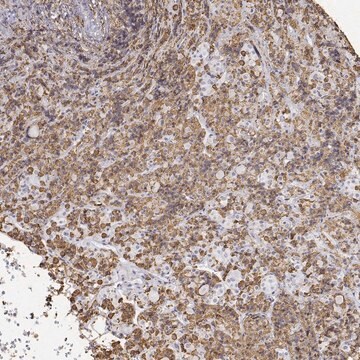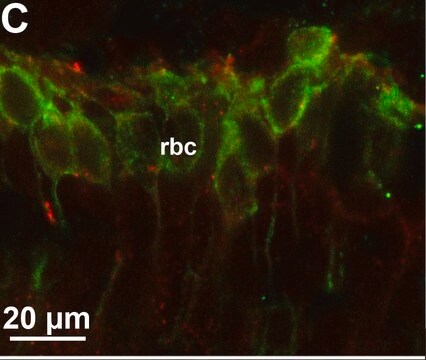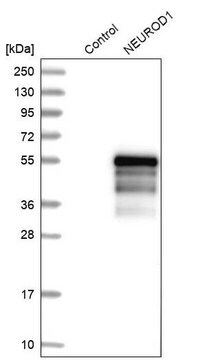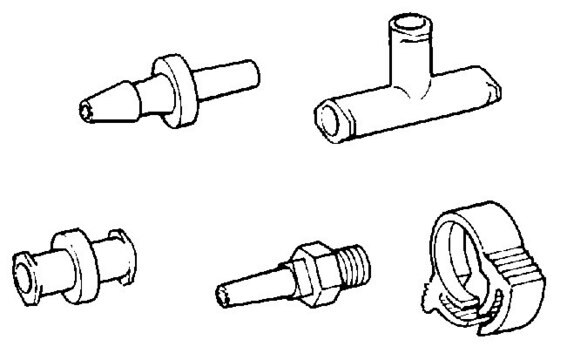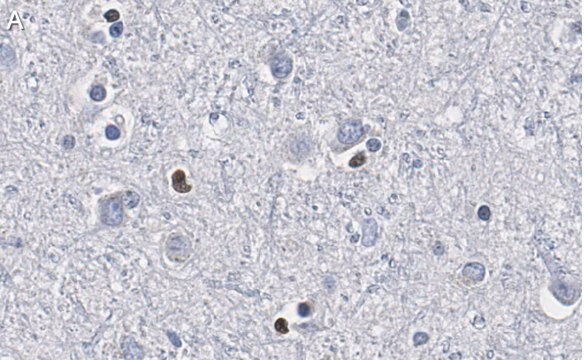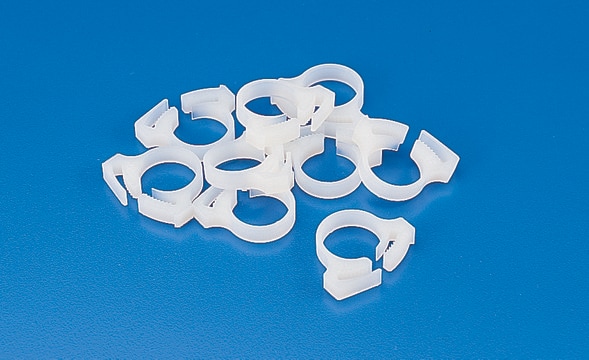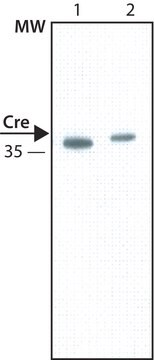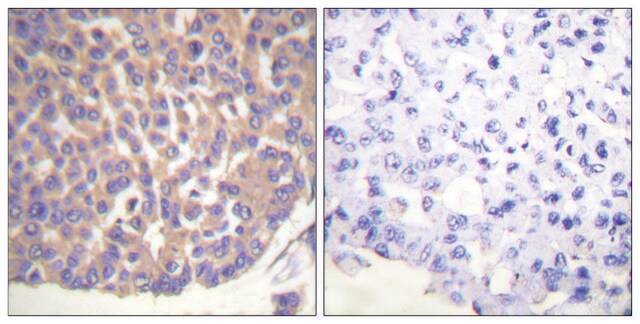ABE991
Anti-NeuroD1 Antibody
serum, from rabbit
Sinónimos:
Neurogenic differentiation factor 1, NeuroD1, Beta-cell E-box transcriptional activator 2, Beta2
About This Item
Productos recomendados
biological source
rabbit
Quality Level
antibody form
serum
antibody product type
primary antibodies
clone
polyclonal
species reactivity
rat, mouse
technique(s)
ChIP: suitable
immunohistochemistry: suitable
western blot: suitable
NCBI accession no.
UniProt accession no.
shipped in
wet ice
target post-translational modification
unmodified
Gene Information
mouse ... Neurod1(18012)
rat ... Neurod1(29458)
General description
Immunogen
Application
Chromatin Immunoprecipitation Analysis: A representative lot immunoprecipitated NeuroD1 in AtT-20 cell lysate (Langlais, D., et al. (2011). Molecular Endocrinology. 25:348-359).
Epigenetics & Nuclear Function
Nuclear Receptors
Quality
Western Blotting Analysis: A 1:1,000 dilution of this antibody detected NeuroD1 in 10 µg of rat brain tissue lysate.
Target description
Physical form
Storage and Stability
Handling Recommendations: Upon receipt and prior to removing the cap, centrifuge the vial and gently mix the solution. Aliquot into microcentrifuge tubes and store at -20°C. Avoid repeated freeze/thaw cycles, which may damage IgG and affect product performance.
Other Notes
Disclaimer
¿No encuentra el producto adecuado?
Pruebe nuestro Herramienta de selección de productos.
Storage Class
10 - Combustible liquids
wgk_germany
WGK 1
Certificados de análisis (COA)
Busque Certificados de análisis (COA) introduciendo el número de lote del producto. Los números de lote se encuentran en la etiqueta del producto después de las palabras «Lot» o «Batch»
¿Ya tiene este producto?
Encuentre la documentación para los productos que ha comprado recientemente en la Biblioteca de documentos.
Nuestro equipo de científicos tiene experiencia en todas las áreas de investigación: Ciencias de la vida, Ciencia de los materiales, Síntesis química, Cromatografía, Analítica y muchas otras.
Póngase en contacto con el Servicio técnico